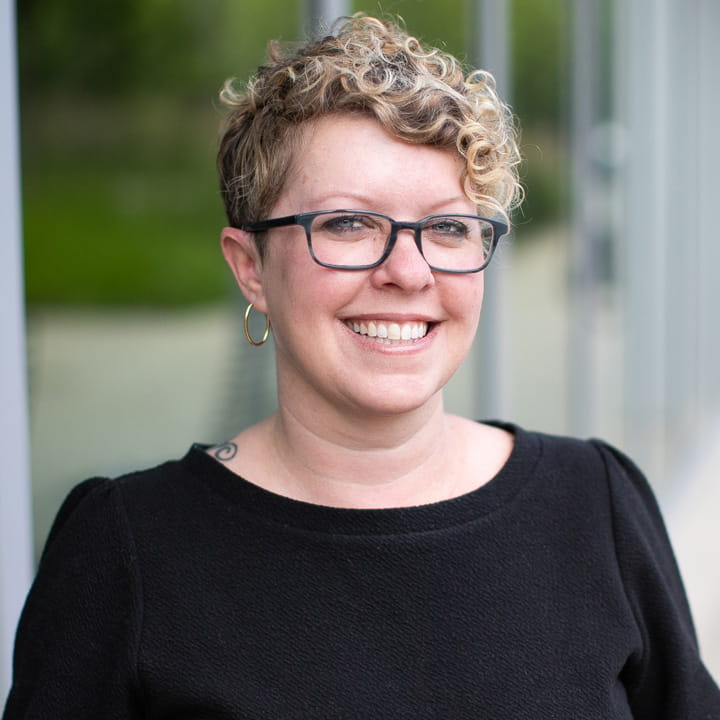
Buckeye Center for Hearing and Development funded for $250,000 capacity-building project
By Ben Lewis
Director of Communications, Ohio State Outreach and Engagement
Published June 16, 2022
 The Buckeye Center for Hearing and Development (BCHD) recently earned $250,000 in funding from the Patient-Centered Outcomes Research Institute (PCORI) for a two-year project to build stakeholder capacity. The project, led by Derek Houston, professor in the College of Medicine, and Carrie Davenport, post-doctoral research scholar in the College of Medicine, will result in a Family Research Council.
The Buckeye Center for Hearing and Development (BCHD) recently earned $250,000 in funding from the Patient-Centered Outcomes Research Institute (PCORI) for a two-year project to build stakeholder capacity. The project, led by Derek Houston, professor in the College of Medicine, and Carrie Davenport, post-doctoral research scholar in the College of Medicine, will result in a Family Research Council.
"The council will collaborate with us to better align our research with the needs of families from their diverse perspectives," Davenport said.
When the Family Research Council is brought together in the second year of the project, it will include a group of 10-12 parents and a few early intervention providers who will help develop a research agenda that will be utilized at the BCHD, an interdisciplinary center at Ohio State focused on child language outcomes and parental linguistic input.
"It will give parents the opportunity to build their capacity to meaningfully engage in the research process from beginning to end," Davenport said. "Including 'How do you develop research questions?,' 'What are good ways to collect data from parents and families?,' all the way to, which is really the important part, translating and disseminating research findings to the public, in particular parents and early intervention providers."
The funded project builds from the work of the Children's Hearing and Language Development Resource Network of Ohio, a state-wide community collaborative with around 60 stakeholders of which Houston was a co-founder. Started in 2016, the year-long initiative was focused on improving Ohio's Early Hearing Detection and Intervention (EHDI) system.
"There is a growing recognition that medical treatments are more effective when patients are involved in the decisions about their own care," Houston said. "In a similar way, we feel that research about language development in children who are deaf or hard-of-hearing will be more impactful if the families and other stakeholders are more involved in the decisions about what is most important to study."
Houston received a grant from the Office of Outreach and Engagement in 2021 to further the work. With that grant, the team was able to invite four parents with deaf children from different parts of Ohio to come together and spend time listening to the stories of their experiences. The seed money helped compensate them for their time. This group will be invited to be a part of the Family Research Council.
"We are really trying to diversify the council to make sure we have the best picture possible of what is happening from all backgrounds," Davenport said. "The goal is to make the research questions that we ask more relevant to families and stakeholders and align their concerns and needs with the research that we do."
Additionally, the project has caught the attention of the National Center for Hearing Assessment and Management (NCHAM). The team has been invited to deliver a webinar on their work and post outcomes on the NCHAM website (infanthearing.org), giving it a national audience.
In addition to Houston and Davenport, collaborators on the project include Ann McAlearney, director of CATALYST at Ohio State, Ursula Findlen from Nationwide Children's Hospital, Lisa Vaughn from Cincinnati Childrens Hospital, and others from the BCHD team.
Read the original article on Ohio State Outreach and Engagement page.
For more information about CATALYST, visit http://go.osu.edu/catalyst.
